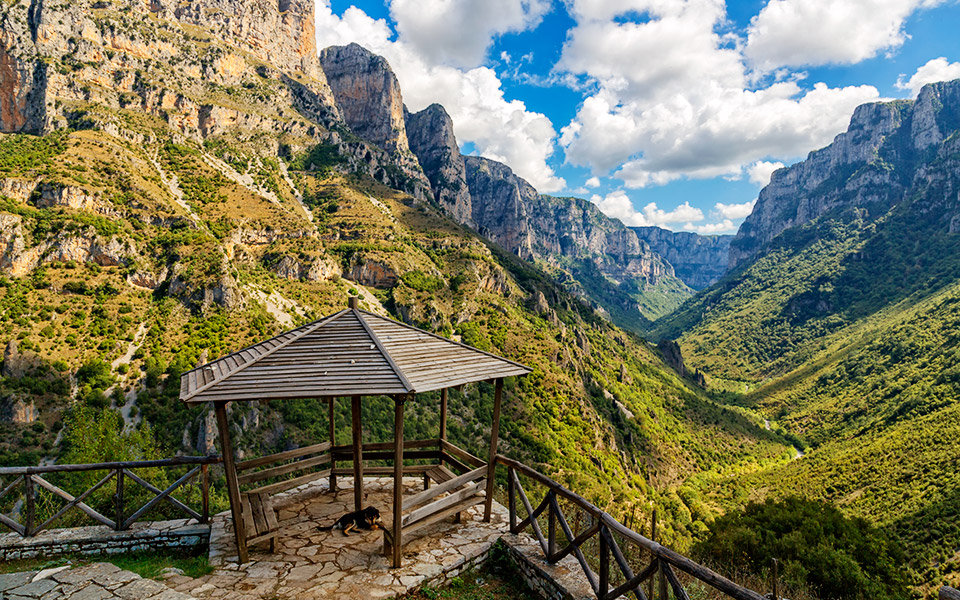The Ministry of Tourism is setting up a task force to come up with concrete proposals to help develop tourism in the country’s more rural mountainous areas. The goal is to attract tourist interest all year round, while keeping the principles of sustainability and respect for the environment at the forefront of these plans.
The development of the tourist industry across mountainous mainland Greece and the problems faced by hoteliers in these regions were the focus of a virtual conference that included representatives of the hospitality industry and Deputy Minister of Tourism Sofia Zaharaki. The deputy minister assured the hospitality professionals that every available financial support would be used in order to strengthen Greece’s natural advantages in “mountain” tourism, and to further leverage this advantage by developing safe, modern facilities.
Zaharaki noted that although Greeks live in a mostly a mountainous country, the third largest such nation in Europe, and although they’re blessed with a particularly beautiful natural environment and a rich folklore of rural traditions, the tourism potential of these mountainous areas is still, unfortunately, rather undeveloped. She also highlighted that the government is now investing in developing and promoting tourism in these areas to stimulate the economy and to maximize all of the country’s forces of production.
The president of the Hellenic Hoteliers Federation, Grigoris Tasios, expressed his satisfaction with the creation of a special task force to focus on hospitality in the mountainous mainland regions of Greece, where, he pointed out, small businesses were struggling to survive the consequences of the pandemic. “Our product lives and breathes in landscapes of incomparable natural beauty,” Tasios said, “yet it’s also suffocated by a lack of facilities; it is time that it claimed the added value it deserves, attracting tourists all year around. We hope that taking advantage of the funds provided by the Recovery Fund, coupled with the appropriate training in tourism and the fine collaboration we have begun with Ms. Zaharaki, will help us in giving ‘another Greece’ a breath of fresh air, extending our tourist season to the benefit of the Greek economy and national employment rates.”
Members of the board of the Hellenic Hoteliers Federation and presidents of local associations submitted their proposals for the touristic future of these rural mountainous regions, aiming to contribute their experience in order to shape the most appropriate, effective and attractive identity for a destination category that will be operational for twelve months out of the year, with an emphasis on alternative tourism and outdoor activities. The representatives of the hotelier community of these regions also reiterated their long-standing request for the reinstatement of the White Educational Week program. In the past, this initiative had boosted local economies and helped children connect with more specialized tourism sectors by establishing a week-long out-of-season school break that added to the country’s domestic tourism calendar.
This article was first published in Greek on moneyreview.gr.











